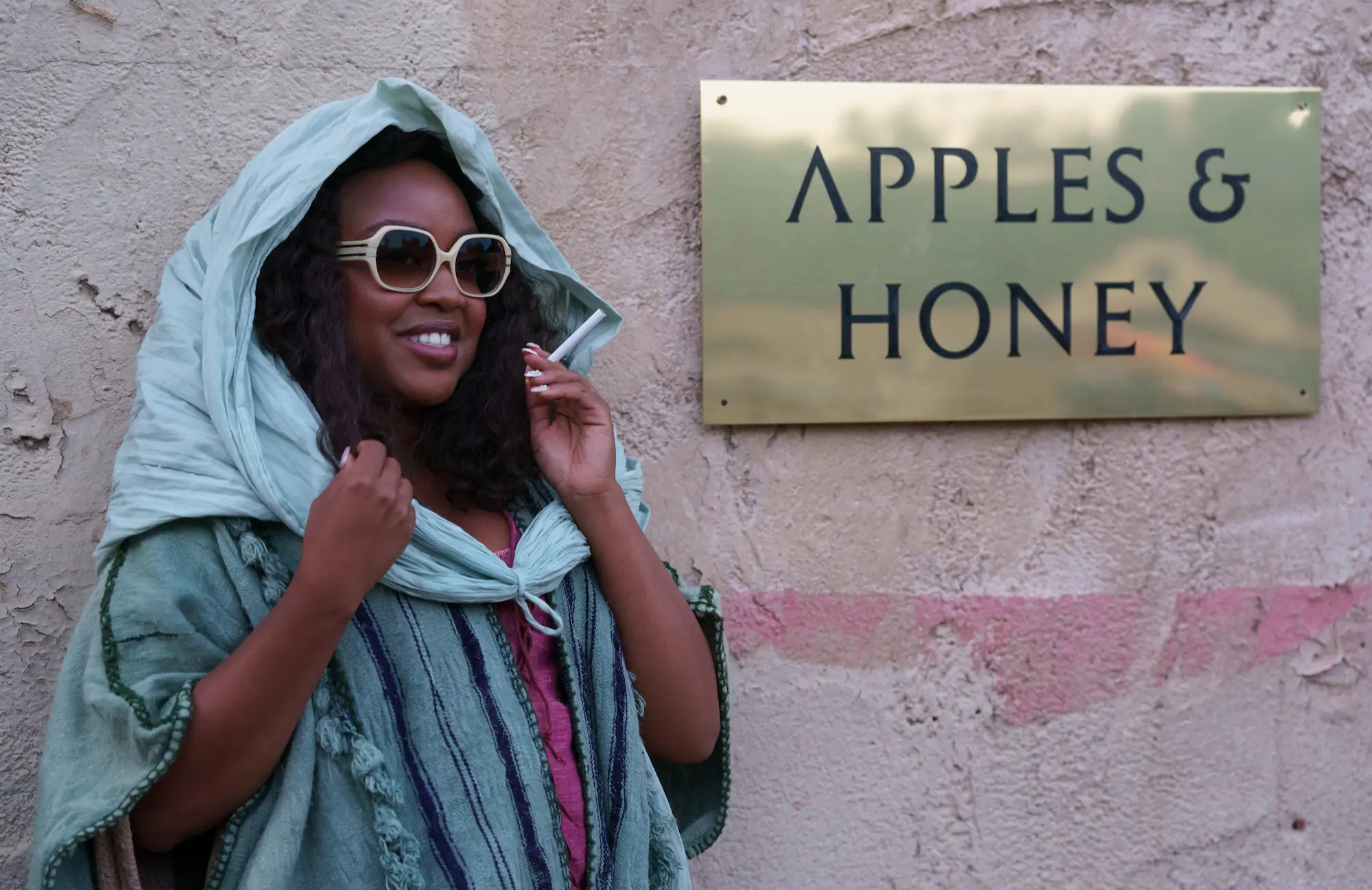Nothing’s Sacred in The History of the World, Part II
-
 Quinta Brunson in The History of the World, Part II (Photo: Aaron Epstein/Hulu)
Quinta Brunson in The History of the World, Part II (Photo: Aaron Epstein/Hulu)The History of the World, Part II begins with incredibly helpful context. In a voiceover, we hear, “I’m American treasure Mel Brooks. To some of you, I am a hero, to others merely a legend.” And the fact is, he’s right. At 96 years old, Brooks could hardly be more influential or beloved for creating gleefully subversive comedies like Blazing Saddles, The Producers, and Young Frankenstein. By announcing his excellence right at the top of Hulu’s eight-episode sequel to his classic 1981 film, he lets us know he’s still making his particular brand of mischief.
Regrettably, though his spirit is certainly in this sketch comedy limited series, Brooks himself is barely present. Beyond that narration, he only appears in a single scene. Instead of a star vehicle, the show’s riffs on great events in humankind become an extended ode to Brooks’ sensibility, balancing intelligence with foolishness and crassness with warmth.
Brooks wrote the series with David Stassen (The Mindy Project), while producing and performing responsibilities are in the hands of a larger team, including Nick Kroll, Wanda Sykes, and Ike Barinholtz. They are joined by a smorgasbord of talented performers, including Johnny Knoxville, Seth Rogen, Danny DeVito, Tyler James Williams, Richard Kind, Jason Mantzoukas, Quinta Brunson, and Zazie Beetz. Many other cameos come thick and fast, which further proves Brooks’ point that he’s an American treasure.
Yet despite the star wattage, the sequel doesn’t land every joke. Some of the standalone bits — like a furious, hummus-themed debate — don’t know how to wrap up their promising first halves, but most of the misses come from sketches with multiple installments. In a send-up of Peter Jackson’s Beatles documentary, the Fab Four are replaced by Jesus and the Apostles. This begins as ridiculous fun, enhanced by Richard Kind’s terrible British accent, but the bit recurs so often that the proverbial horse is well and truly beaten to death.
The series works best when it embraces Brooks’ self-proclaimed willingness to go “below vulgarity.” In another Jesus-themed bit, J.B. Smoove and Quinta Brunson team up for a story about the inadvertent invention of a holiday tradition that is “f***ed up but delicious.” The two of them have a glint in their eyes that suggests they relish the edgy humor. There’s a similar verve when the Jackass crew recreates the assassination of Rasputin; a sketch imagines Ulysses S. Grant getting saddled with Abraham Lincoln’s nepo baby son; and DeVito, as Tsar Nicholas II, skewers both influencer culture and the notoriously inbred Hapsburg dynasty.
These high points reinforce one of the most striking aspects of Brooks’ entire career: Comedy can be politically incorrect without being bigoted. In fact, effective satire demands material that’s both clever and shocking. In a scene that sees an Indigenous stand-up comic play to a crowd of Confederate soldiers, or one in which ancient religious leaders decide it’s better for Jesus to be white, the show pulls off the invaluable trick of sneaking sharp critique into silly material. Audiences who are laughing are more likely to hear what an artist has to say without feeling like they’re being lectured.
Even if it doesn’t become a legend like the original, The History of The World, Part II is still a welcome reminder that in the right comic hands, the biggest taboos can be delightful. Those who lament so-called “cancel culture” should take a look and see what you can get away with when you are clever enough, whimsical enough, and charming enough. Mel Brooks didn’t become an American treasure because he put the N-word in Blazing Saddles or had Hitler doing the can-can in The Producers. He became a legend because he found lightness in the darkest of human depravity.
The History of the World, Part II premieres March 6 on Hulu. Join the discussion about the show in our forums.
Leila Latif is Contributing Editor to Total Film, the host of Truth & Movies: A Little White Lies Podcast and a regular at Sight and Sound, Indiewire, The Guardian, The BBC and others. Follow her on twitter @Leila_Latif.
TOPICS: History of the World, Part II, Hulu, Danny DeVito, Ike Barinholtz, J.B. Smoove, Mel Brooks, Nick Kroll, Quinta Brunson, Wanda Sykes